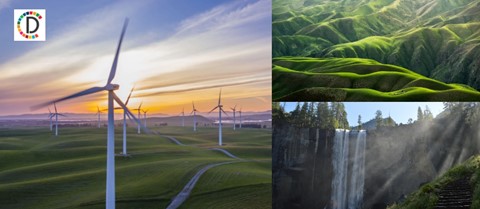Reuters Science News Summary
Coronavirus reinfections rarely severe Senators say U.S. must strengthen space debris monitoring A group of U.S. senators on Tuesday asked the Biden administration to do more to monitor and respond to space debris following Russia’s anti-satellite test.

Following is a summary of current science news briefs.
COVID-19 reinfection less likely to be severe; cardiac stress test useful for unexplained lingering breathlessness
The following is a summary of some recent studies on COVID-19. They include research that warrants further study to corroborate the findings and that has yet to be certified by peer review. Coronavirus reinfections rarely severe
Senators say U.S. must strengthen space debris monitoring
A group of U.S. senators on Tuesday asked the Biden administration to do more to monitor and respond to space debris following Russia's anti-satellite test. Commerce Committee chair Maria Cantwell, ranking Republican Roger Wicker and two other senators asked Vice President Kamala Harris and Commerce Secretary Gina Raimondo about debris issues. The Russian test, which created over 1,500 new objects, has drawn U.S. condemnation.
World's underground fungal life to be mapped for first time
Scientists unveiled plans on Tuesday to map the world's huge underground webs of fungi for the first time, to identify hotspots that could better protect natural ecosystems and store carbon dioxide to help tackle climate change. Underground fungal networks underpin the health of plants, trees and broader ecosystems by creating thread-like webs in soil that suck in CO2 and transport nutrients like phosphorus to plants.
Citing debris risk, NASA delays spacewalk to fix space station antenna
A spacewalk planned for Tuesday to repair a faulty antenna on the International Space Station was postponed indefinitely, NASA said, citing a "debris notification" it received for the orbiting research laboratory. Two U.S. astronauts had been scheduled to venture outside the space station at 7:10 a.m. Eastern time (1210 GMT) to begin their work, facing what NASA officials had called a slightly elevated risk posed by debris from a Russian anti-satellite missile test this month.
(This story has not been edited by Devdiscourse staff and is auto-generated from a syndicated feed.)
ALSO READ
NASA's Starliner Fiasco: Leadership and Design Flaws Laid Bare
NASA's Crisis: Botched Starliner Mission Under Scrutiny
Recruitment of Kenyans into Russian War Efforts Stirs Controversy
Kenyan Citizens Recruited for Russian War Effort: Unveiling the Rogue Network
Rising Russian Hybrid Threats: Intelligence Insights










